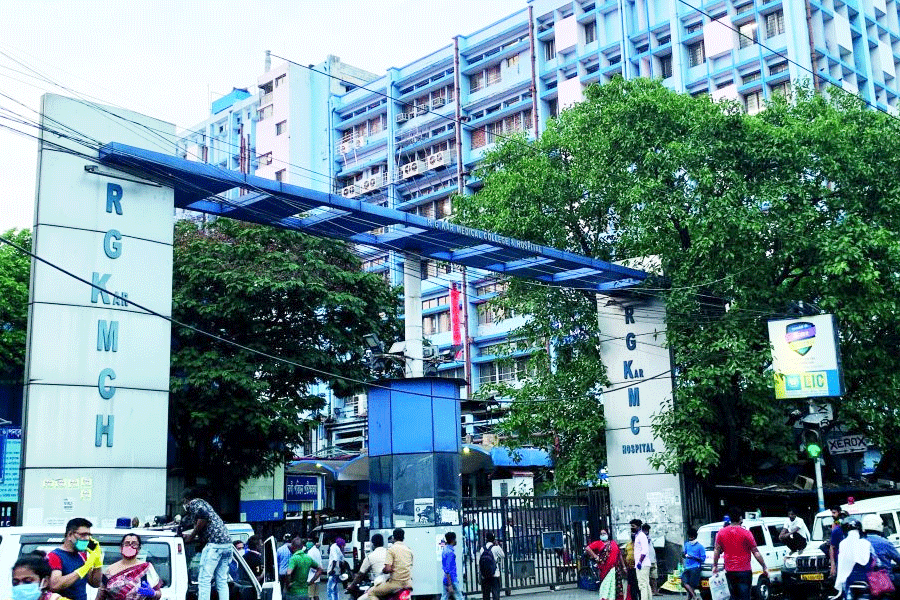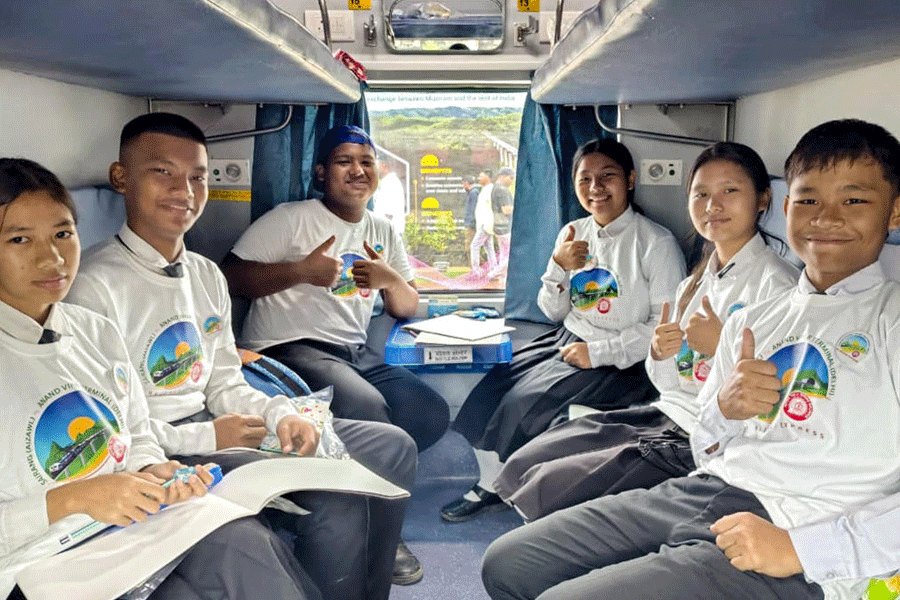 |
| Naga children |
Kohima, June 25: Akrutzü, a Chakhesang woman, is learning Ao. E.T. Ngullie’s wife speaks fluent Lotha, but she comes from a different tribe.
Blame it on inter-tribe marriages. The Nagas, especially the youth, fumble for words when it comes to displaying their command over their mothertongue. The vocal chords are now more tuned to English and the ubiquitous Nagamese, a corrupt non-script version of Assamese that is serving as the lingua franca of this tiny hilly state for centuries.
The State Council of Educational Research and Training has discovered after a survey on the changing pattern of languages in Naga society that “there are many homes which use multiple dialects other than the mothertongue due to inter-tribe marriages”.
“Although English emerged as the most favoured language, Nagamese is getting a prominent place inside the classroom as well as at home,” states the survey report.
Nagaland has adopted three languages with English, the mothertongue and Hindi coming first, second and third in the pecking order. Nagamese was seen as an intruder, but the survey has discovered that English was not far behind in overshadowing Naga dialects. People were not amused at this changing trend. Nearly 46 per cent of students could not read or write their mothertongue for the simple reason that it was not taught in schools.
The survey revealed that one-third of the students used Nagamese to converse with friends of their own community, but only two per cent of teachers speak this “bazaar language” with their colleagues and pupils. “My children converse with me in Nagamese, and I unknowingly switch over to it,” said Ngullie, a government employee. However, people like Lanusunep Ao insists that “my son learns both parents’ mothertongue”.
Nagaland is perhaps the only state in the country where all textbooks — from primary to the higher secondary level — are written in English. The use of the language in the Assembly proceedings exhibits the Nagas’ dependence on English, even at the cost of their mothertongue.
To stop further dilution of ethnic languages, the state school education department has issued a directive to tribal literature committees to print and publish books in local dialects.











